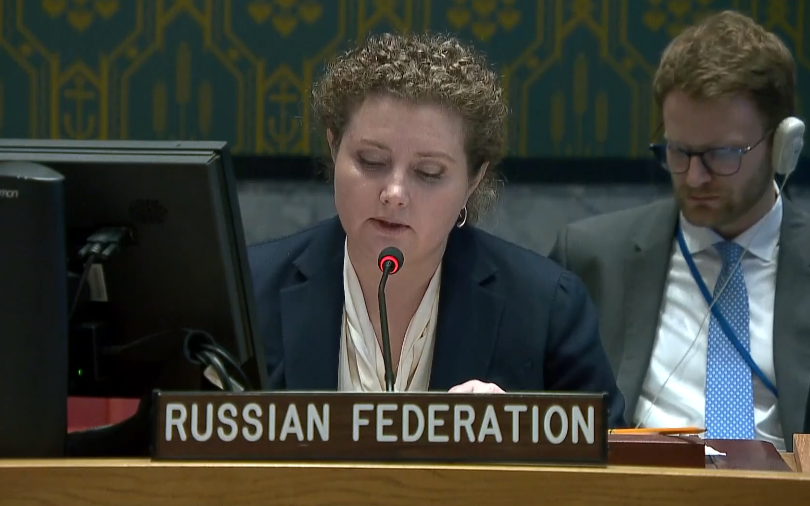Statement by Deputy Permanent Representative Anna Evstigneeva at UNSC briefing on the situation in the Democratic Republic of the Congo
Mr.President,
We thank SRSG Keita for her briefing on the situation in the Democratic Republic of the Congo. We were struck by a tragic story shared by Ms. Julienne Lusenge. We welcome Permanent Representatives of the DRC, Burundi, and Rwanda to this briefing.
We are very concerned over the ongoing hostilities in eastern DRC. We condemn attacks of illegal armed formations on civilians, state military units and MONUSCO. In particular, we strongly condemn the actions of the March 23 Movement (M23). M23 has enhanced its capacity which lets this group go on offensives and in fact seize territories, as was the case with Bunanga settlement at the Ugandan border.
With confrontation with M23 in its active phase, other illegal armed formations keep terrorizing the local population and fighting with each other for control of natural resources. These actions harm civilians in the first place. There are hundreds of casualties, the humanitarian situation is deteriorating, the number of refugees and IDPs is on the rise.
We hope that the DRC forces jointly with peacekeepers from MONUSCO and other international partners will be able to reinstate control of the security situation and prevent further escalation of violence. We appreciate the efforts of peacekeepers who valiantly fulfil their duties, risking their lives for the sake of peace in eastern DRC.
Putting an end to hostilities and beginning of a full fledged dialogue are the two overriding priorities for the DRC today, because there is no way the situation can be normalized through military measures alone. We call on the illegal armed formations to stop their attacks, abandon violent methods and embark on negotiations with the DRC government. We note that the number of those representing armed formations at consultations of the Nairobi process has increased.
We welcome active steps made by African states and aimed at promoting settlement in the DRC. We do hope that the talks in Nairobi will facilitate such steps and measures that should create a real and lasting positive momentum.
Frank and constructive interaction at the level of regional states is to play a key role in promoting lasting settlement and reconciliation. It is important to abstain from confrontational rhetoric and overcome the existing mutual distrust and contradictions.
We also welcome mediator efforts of regional organizations and sub-regional mechanisms, in particular African Union and the International Conference of the Great Lakes Region, and express our support for settlement-aimed efforts of MONUSCO leadership, SESG Xia and the United Nations at large. We reiterate our principled support for UN efforts.
Deadly events of past years must not repeat themselves and push the country into large-scale armed action, the implications of which will take decades to overcome for all of us, and the people of the DRC in the first place. We call on those members of the international community who can influence the current developments to do their best to have the situation stabilized.
In practical terms, it is important to engage the entire toolset of the regional oversight mechanism for the Peace, Security, and Cooperation Framework, and focus on elaborating and implementing such programs for disarmament, demobilization, and social reintegration of former combatants that would make a maximum number of people want to quit armed formations for good.
We hope that Kinshasa, with the help of the United Nations, states of the region and the global community will be able to curb those recently intensified threats and ultimately switch to solving tasks related to state-building process and socio-economic development. This appears especially important in light of presidential elections that are to take place at the end of 2023. The elections will signify one of the key stages of stabilization in the DRC. We proceed from the assumption that resilience and efficacy of DRC’s central authorities are a prerequisite for overcoming the consequences of the colonial past, strengthening sovereignty and territorial integrity of the country, enhancing control of its vast natural resources and ensuring prosperity for its nation.
Thank you.
